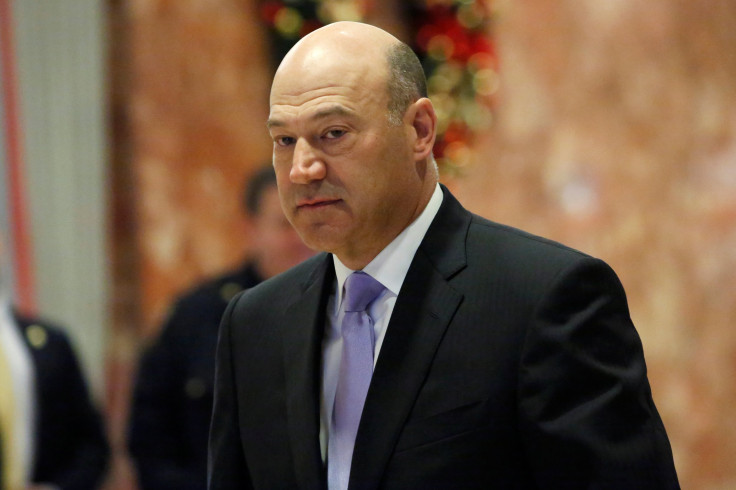What Is The Glass-Steagall Act? Trump And Economic Adviser Want To ‘Break Up The Banks’

Despite efforts by President Donald Trump and White House National Economic Council Director Gary Cohn to derail the landmark 2010 regulatory law that sought to correct the behavior leading to the 2008 financial crisis, both men might find common ground with advocates of financial industry oversight when it comes to a much older law known as the Glass-Steagall Act.
Passed during the early days of President Franklin Roosevelt’s first term in 1933 and known at the time as the Banking Act, the law separated commercial banking, such as checking accounts and consumer loans, from investment activities, like securities dealing. Pundits and politicians often employ a simpler phrase to sum up the measure’s objective: “Break up the banks.” The 1999 Graham-Leach-Bliley Act partially repealed the 1933 law, rendering it ineffective. Consequently, many have labeled the 1999 repeal a main reason for the financial debacle that would unfold less than a decade later.
As Bloomberg first reported this week, Cohn—a former chief operating officer at Goldman Sachs Group, which paid more than $5 billion to the Justice Department in 2016 for its fraudulent mortgage-backed securities trades in the lead up to the Great Recession—told lawmakers privately that he supported reinstating the act, to the surprise of some of those same lawmakers.
Trump himself campaigned on a populist message, and the Republican Party’s official platform, unveiled at the Republican National Convention in July, reflected this image in at least one respect, calling for “reinstating the Glass-Steagall Act of 1933 which prohibits commercial banks from engaging in high-risk investment.”
Read: What Is Dodd-Frank? Explainer On Obama's Wall Street Reform Rule Trump Could Kill
Still, in early February, Trump signed an executive order initiating an effort to scale back the Dodd-Frank Wall Street Reform and Consumer Protection Act, which sought to boost monitoring of financial institutions, cut predatory lending and raise the level of capital banks must keep on hand in case of a crisis. Cohn vocally supported this order, describing it to the Wall Street Journal as “a table setter for a bunch of stuff that is coming.”
I'll keep working with Congress, agencies, and the American people until we eliminate every unnecessary, job-killing regulation we can find!
— President Trump 45 Archived (@POTUS45) March 27, 2017
“Americans are going to have better choices and Americans are going to have better products because we’re not going to burden the banks with literally hundreds of billions of dollars of regulatory costs every year,” Cohn told the Journal. “The banks are going to be able to price product more efficiently and more effectively to consumers.”
© Copyright IBTimes 2024. All rights reserved.






















